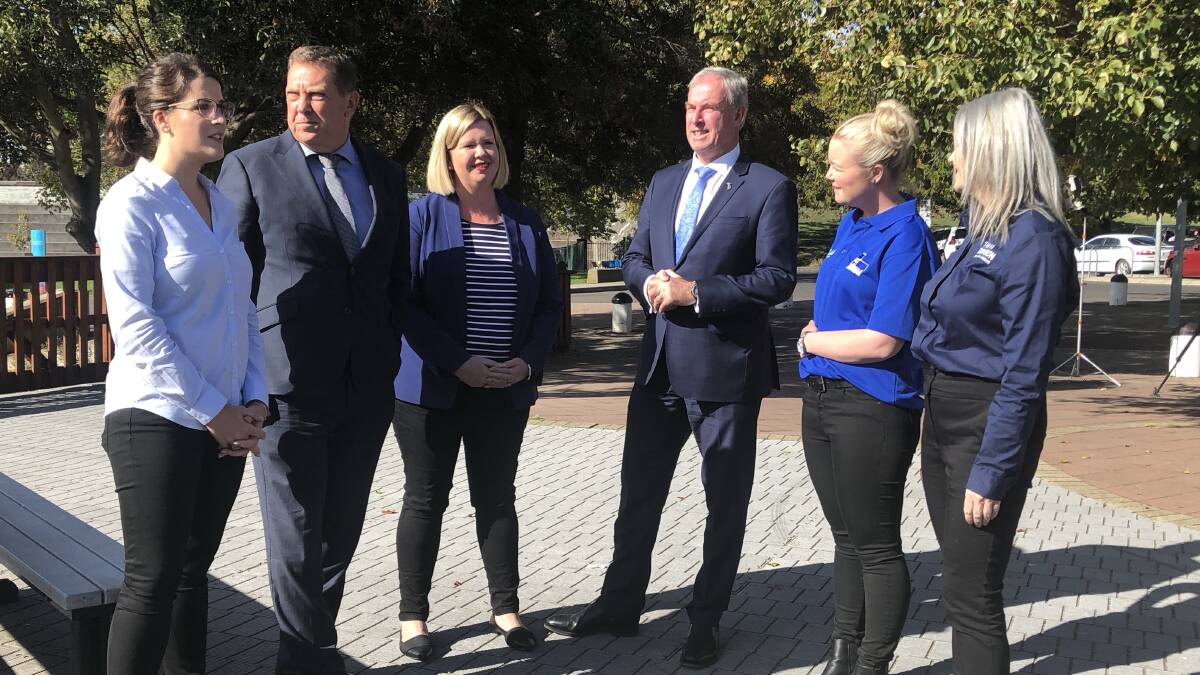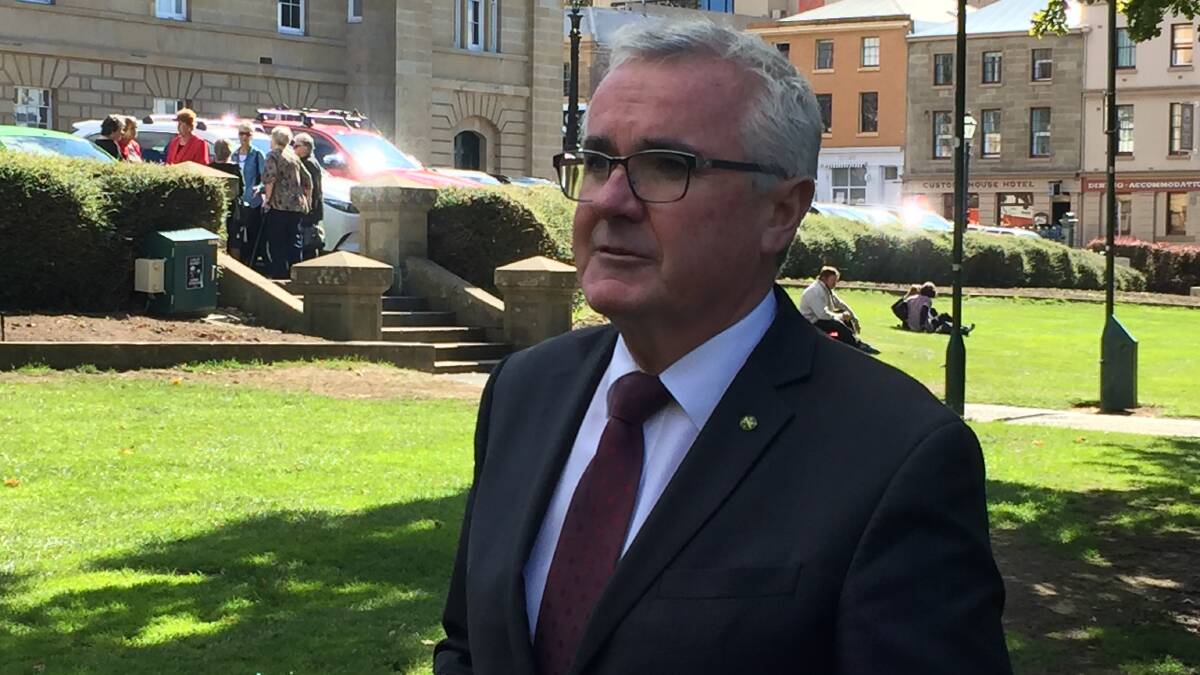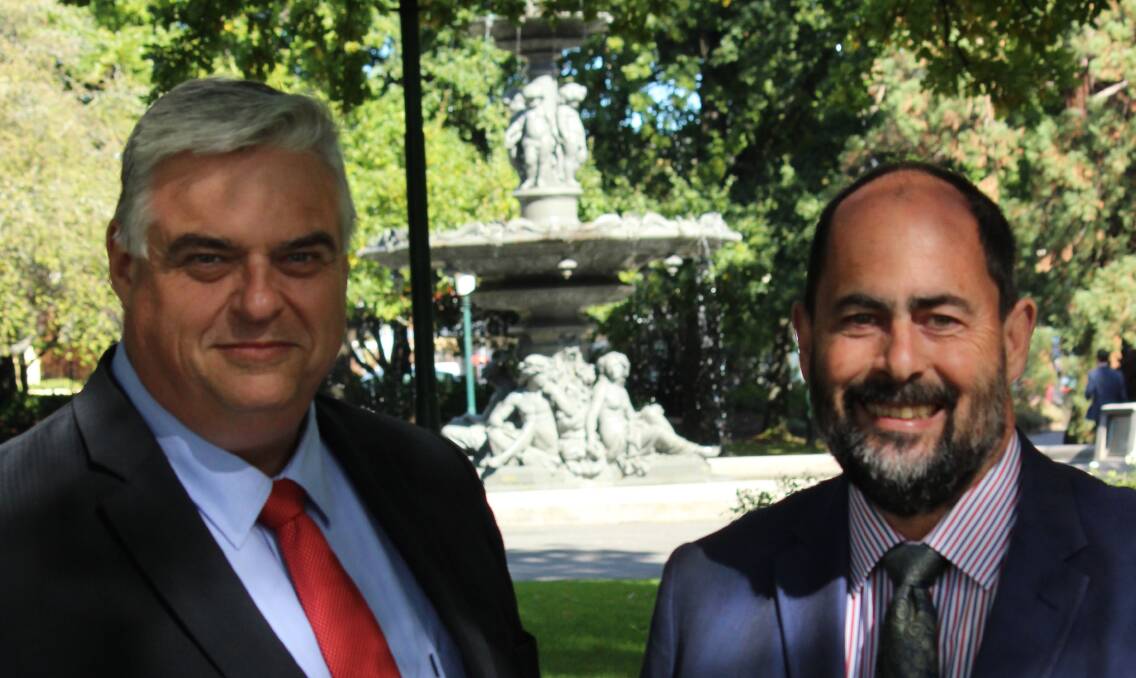
The Liberals will aggressively campaign in Tasmania to win three seats in the Senate this federal election.
Subscribe now for unlimited access.
or signup to continue reading
Tasmanian Liberal senator Richard Colbeck is the only sitting Liberal up for election this campaign and will be joined on the ticket by Claire Chandler and Tanya Denison.
"We're running a strong team of candidates across Tasmania to win all seats - that's our target," he said.
Senator Colbeck said he believed the party had a chance of taking back Bass, Braddon and Lyons lost by the party in the 2016 federal election.
He said this election would be based on which party was best in a position to deliver Tasmanian jobs and fund essential services like health.
"Because we have brought the budget back into surplus we can invest more in health and education," he said.
"Since coming to office we have increased public hospital funding by 45 per cent.
"And we have a plan to increase education funding by 43 per cent per student over the next decade."
Carol Brown, Catryna Bilyk and John Short are placed first to third on Labor's ticket, leaving sitting senator Lisa Singh in an unwinnable position.
Tasmanian Greens senator Nick McKim also has a fight ahead with growing interest in minority parties in the Senate.
Senator McKim won his seat in 2016 after beating One Nation candidate Kate McCulloch by 141 votes.
On Thursday, he would not be drawn on his re-election chances and said it was a matter for voters.
"We are incredibly focused on making sure we put our best foot forward and we can campaign very strongly so we can keep a strong Green voice in the Senate," Senator McKim said.
He said the party would campaign on better management of the state's wilderness and World Heritage Areas, to make the Tarkine region into a national park, and place moratorium on fish-arm expansion.
There is destined to be a bitter fight on the North-West Coast between Nationals senator Steve Martin and former senator Jacqui Lambie.
Ms Lambie was forced to give up her seat in 2017 after she was found to be ineligible to sit in Parliament due to being a dual citizen by descent.
Senator Martin, a former party colleague, denied her requests to hand back the seat after he was elected on a recount.

Clark independent MHR Andrew Wilkie said he would run again in this election and ruled out making preference deals with any party.
He said he would also not enter into any deals in the event of a hung Parliament but would work with whichever party assumed power.
Mr Wilkie would not speculate on his re-election chances although admitted he went into the race with a "healthy margin".
"Clearly in Australia, there is an unprecedented level of dismay with politics and politicians and political parties," he said.
"I go into this election ... with the full knowledge that I need to work hard to convince the community to vote for me again."
Braddon Labor MHR Justine Keay said the party would focus on investment in hospital and medical services, schools funding, restoration of penalty rates and jobs growth on the North-West and West coasts.

Bass Labor MHR Ross Hart said the election would be fought around Labor's plan for health which so far had pledged $30 million to address the state's elective surgery backlog and a $15 million for a mental health hub.
He said it was also important that more money was poured into TasTAFE to enable growth in blue-collar jobs.
Lyons Labor MHR Brian Mitchell said health and cost of living were the biggest issues in his electorate.
He said Labor's pledge to have all cancer treatment costs taken into Medicare had been well-received by the community.
"This will be an election fought on the battleground of fairness and making sure Australians get a fair go across the country," Mr Mitchell said.
Both were confident Labor would hold their four seats following polling day.













